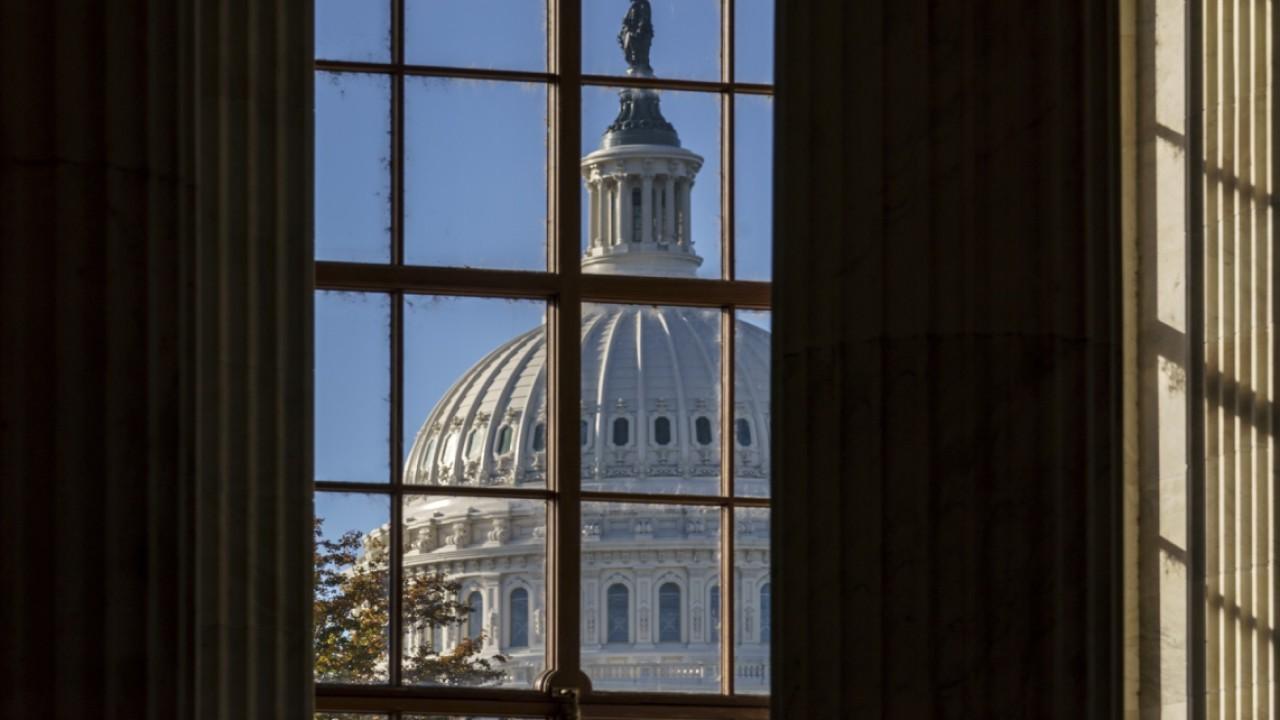Pelosi, Schumer endorse $908B coronavirus relief deal as basis for negotiations
Pelosi, Schumer make major concession on coronavirus relief deal
House Speaker Nancy Pelosi and Senate Minority Leader Chuck Schumer embraced a bipartisan $908 billion coronavirus relief deal as the starting point for negotiations with Republicans, a major concession that comes as Congress struggles to send aid to Americans before the end of the year.
In a joint statement, the Democratic leaders, who for months have refused to go below $2.2 trillion, signaled they were open to a smaller bill as outside pressure builds on lawmakers to strike a deal.
"In the spirit of compromise, we believe the bipartisan framework introduced by Senators yesterday should be used as the basis for immediate bipartisan, bicameral negotiations," they wrote. "Of course, we and others will offer improvements, but the need to act is immediate and we believe that with good-faith negotiations we could come to an agreement."
12 MILLION AMERICANS FACE LOSS OF UNEMPLOYMENT BENEFITS DAY AFTER CHRISTMAS
The $908 billion framework, unveiled Tuesday by a bipartisan group of senators, allocates about $300 billion in funding for small businesses through the Paycheck Protection Program, $240 billion in aid for state and local governments, $180 billion to extend boosted unemployment benefits at $300 per week through March and a temporary moratorium on COVID liability lawsuits to allow states enough time to design their own laws.
It would also funnel $16 billion into vaccine distribution, testing and contact tracing, put $82 billion into education, and give $45 billion for transportation. The deal notably does not include a second stimulus check.
Senate Majority Leader Mitch McConnell quickly rejected the plan on Tuesday and stood by his "highly targeted" $500 billion proposal. He also said that a spending bill needed to avoid a government shutdown on Dec. 11 and pandemic relief provisions will "all likely come in one package.”
“We just don’t have time to waste time,” he told reporters.
BIDEN CALLS FOR ERASING SOME STUDENT LOAN DEBT, FACES PROGRESSIVE PRESSURE TO GO FURTHER
Senate Democrats have twice blocked McConnell's bill, which focused on providing funding for small businesses, aid for schools and liability protections for businesses, arguing that it did not go far enough in helping workers and businesses still reeling from the crisis.
Renewed relief talks come at an increasingly perilous time for the nation as it teeters on the brink of another economic downturn. COVID-19 cases are surging — on Wednesday, the U.S. reported its highest number of coronavirus deaths in a single day with 3,157 new fatalities — state and local governments are implementing more restriction measures and new unemployment insurance claims are rising.
At the same time, safety nets set up in the early days of the pandemic with the passage of the March CARES Act have already lapsed or are set to do so at the end of December. About 12 million laid-off workers will be left with no income on Dec. 26 after two key federal jobless aid programs expire, according to one estimate from the Century Foundation, a nonprofit think tank.
“In light of the urgency of meeting the needs of the American people and the hope that the vaccine presents, it’s time for Leader McConnell to sit down with Democrats to finally begin a true, bipartisan effort to meet the needs of the country," the Democratic leaders wrote.
PELOSI, SCHUMER URGE MCCONNELL TO RESTART CORONAVIRUS RELIEF TALKS
Still, with just six legislative days left on their calendar, it's unclear whether lawmakers will be able to overcome a monthslong deadlock and reach an agreement that will be able to pass both chambers of Congress and that President Trump is willing to sign.
During congressional testimony this week, Federal Reserve Chairman Jerome Powell reiterated his plea to lawmakers to pass another stimulus package to help the economy get through the winter.
“It would be very helpful and very important that there be additional fiscal support for the economy, really to get us through the winter,” Powell said. “I think we made a lot of progress faster than we expected, and now we have a big spike in COVID cases, and it may weigh on economic activity. People may pull back from activities they were being involved in or not engage in new activities.”




















